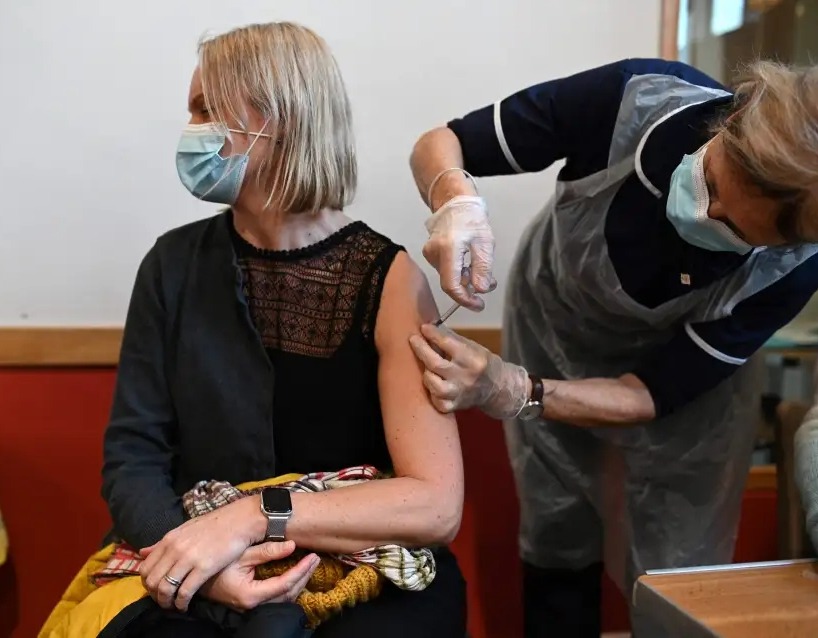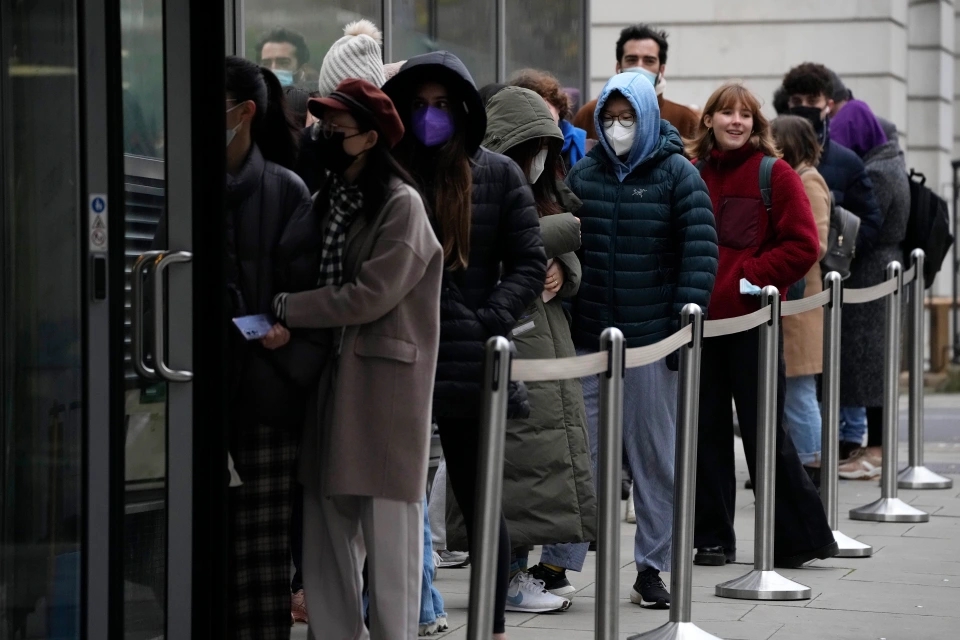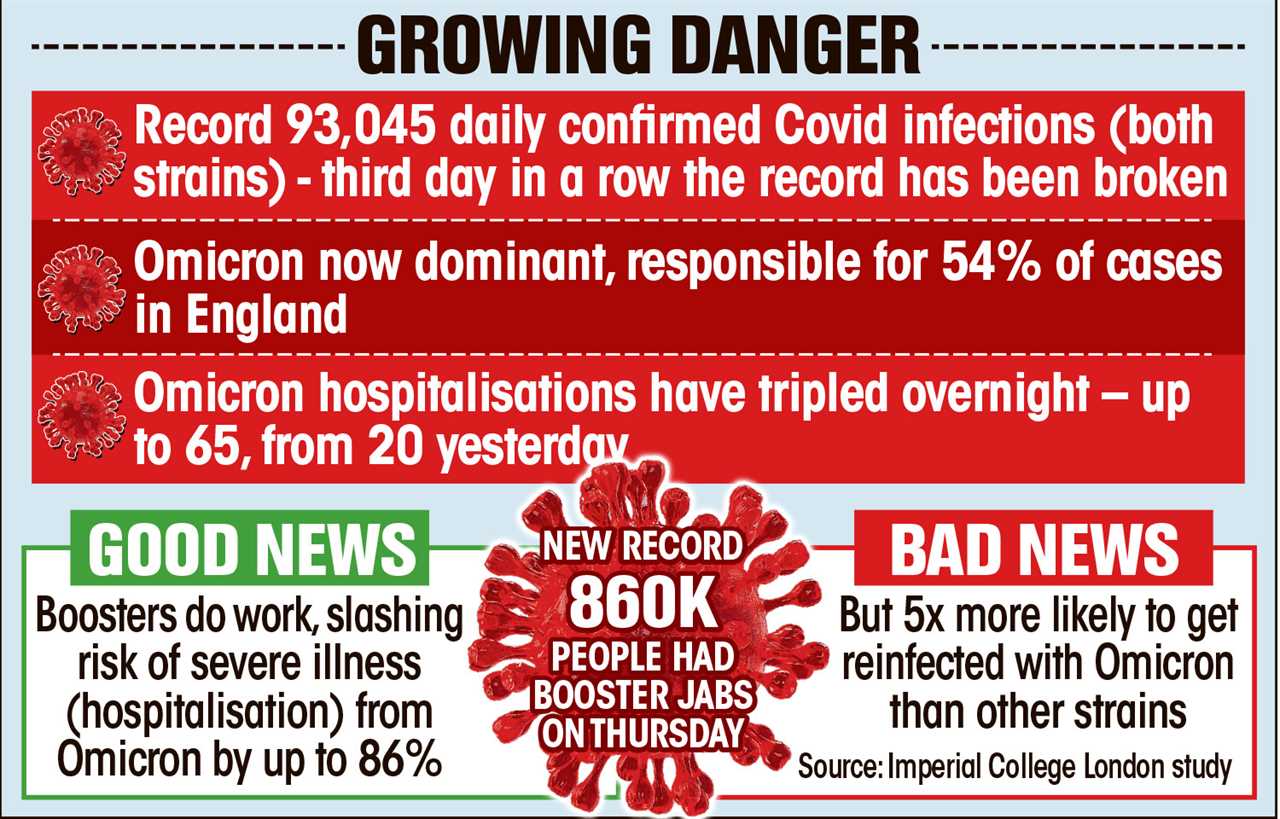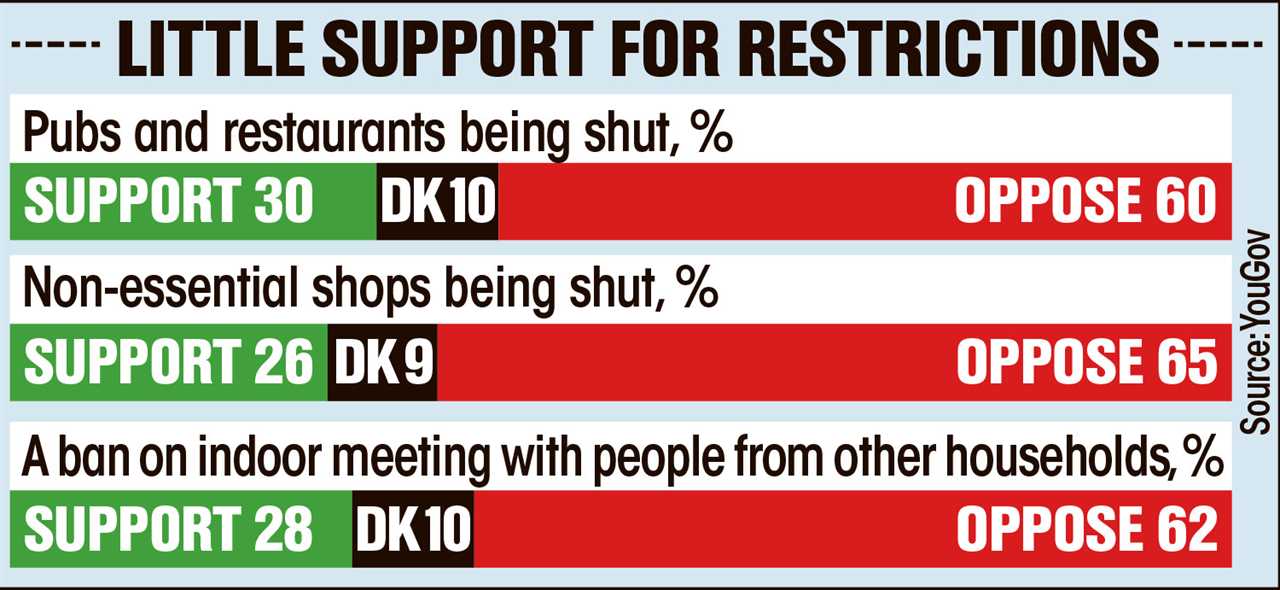COVID boosters slash the risk of falling seriously ill from Omicron by up to 86 per cent, top scientists have claimed.
They tested how blood samples from jabbed individuals fare against the mutant strain.



Three doses still gave high levels of protection from Omicron in terms of needing hospital treatment, but their ability to prevent mild infection fell, experts from Imperial College London found.
Researcher Professor Azra Ghani said: “Our results demonstrate the importance of delivering booster doses. We’re in a good position in the UK because booster doses were rolled out to the highest risk groups a little while ago.
“The more they can get out and the faster they can get out, the better the impact.”
The news comes as daily confirmed Covid cases across the UK hit a new pandemic high of 93,045 yesterday — the third day in a row the record has been broken.
The total was 60 per cent up on the previous Friday’s tally of 58,194.
Hospital cases caused by Omicron also more than trebled in 24 hours — with 65 reported last night, up from 20 the previous day.
Official data shows more than half of infections in England are now driven by the new variant — meaning the super-contagious strain is now dominant with the Christmas party season in full swing
Scots leader Nicola Sturgeon warned of a “tsunami” of Covid cases as she revealed Omicron is behind 51.4 per cent of cases there.
In a bid to get ahead of the Covid threat, the NHS is having a mammoth booster weekend to make it easier to get jabbed.

Read our Covid-19 live blog for the latest updates
Officials hope to get a million-plus shots in arms each day after more than 860,000 got their booster on Thursday — a pandemic daily jab record, beating the 844,285 injected on March 20.
Over-18s can get their third shot at the nation’s top football stadiums, including Anfield in Liverpool, and Wembley and Stamford Bridge in London.
Sandown Park and Chelmsford City racecourses are also being transformed into pop-up jab sites, as the rollout is ramped up.
And festive shoppers can get boosters at London’s Oxford Street, Bluewater in Kent and the Christmas Market at Chester Cathedral.

NHS national medical director for England Prof Stephen Powis said: “With Omicron cases soaring and two doses of vaccine not providing the protection we need, it is vital to get a booster — for you, your family and friends.
“From stadiums to racecourses and mobile buses to Christmas markets, the NHS Covid vaccination programme — the biggest and most successful in our history — is pulling out all the stops to make it easier than ever.” The Imperial College London research, led by “Professor Lockdown” Neil Ferguson, sheds new light on how immunity holds up against the super-mutant strain.
It found protection from two vaccine doses or a natural infection falls to just 19 per cent in the face of Omicron.
This means millions of people are on course to catch the bug for a second time. Two doses should still prevent around two-thirds of hospital admissions — but a booster is needed to ramp protection levels back up as high as 86 per cent.
Although this is lower than protection against Delta, it will still prevent tens of thousands from severe disease.
The study said a successful booster rollout to the over-60s will reduce next year’s deaths by 25 per cent. Professor Ghani added: “From an individual perspective, we’ve seen a very good, high vaccine efficacy with a low chance of a severe outcome if you have received the booster dose. The difficulty is that, at the population level, it could still mean a large number of people requiring hospitalisation.
“It’s quite likely that those hospitalisations will be less severe but it’s the strain on the health system that really matters.”
The researchers said people are five times more likely to get Covid for a second time from the mutant Omicron strain.
Because immunity does not hold up well, the gloomy Sage advisers warned of huge spikes in infections, hospital admissions and deaths over the winter.
Projections suggested deaths could surge to 2,500 or 4,000 per day in an uncontrolled peak in the new year — compared to a record high of 1,600 in January 2021.
But commenting on Imperial’s study, the University of Oxford’s Professor James Naismith said: “We can be confident that double and especially triple-vaccinated people have protection against serious disease. As a result, the number of hospitalisations per 1,000 infections of Omicron will be significantly lower than the first wave.
“Better medicines and treatments will help too.”
And a study by the University of Cape Town found immunity from T-cells made after the Pfizer jab is still 70 to 80 per cent as good as it was against the Wuhan variant.
LATERAL flow tests are just as likely to detect Omicron as other Covid variants, Government scientists said.








